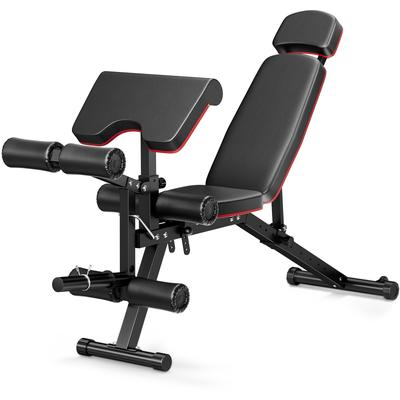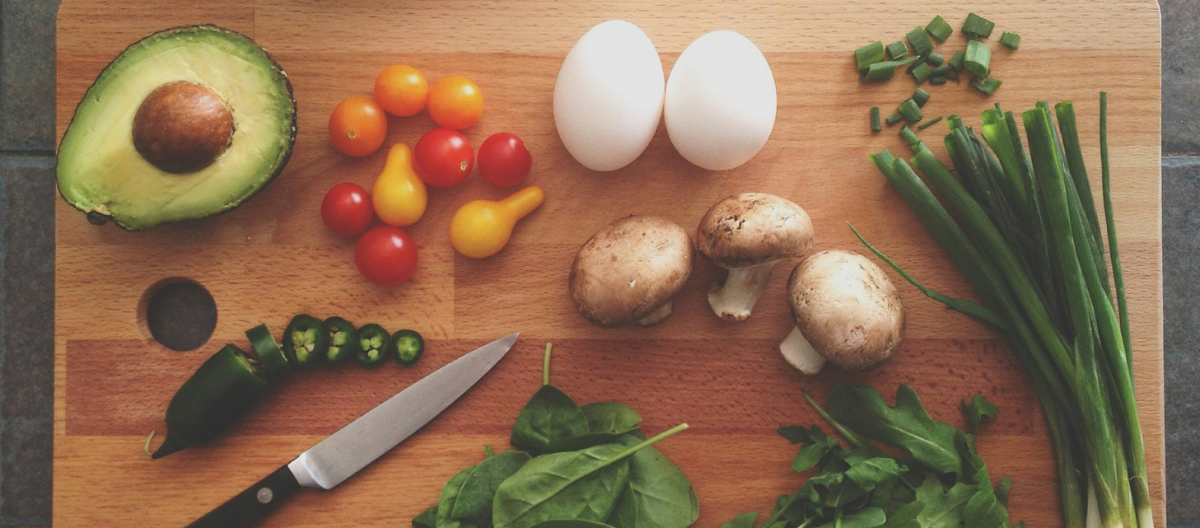Hey Diva dressing fans! When the items we love coincide with brands we work with, Diva dressing will use Paid Links in our articles. If you decide to click on these links and purchase the product, we get a small commission. Our Opinions Are Our Own, but we do add Paid Links as a way to offer these products at no added cost to our readers. Want to know more? Click Here to check out our Terms of Use anytime!
Achieving optimal health involves more than just regular exercise or a balanced diet—it requires the integration of both nutrition and fitness to create a comprehensive approach to well-being. The synergy between these two elements can enhance physical performance, accelerate recovery, and promote overall health. Here’s how integrating nutrition and fitness can lead to optimal health and how you can effectively combine them in your daily routine.
Understanding the Relationship Between Nutrition and Fitness
Nutrition provides the essential nutrients needed to fuel physical activity, repair tissues, and support overall bodily functions. Fitness involves regular physical activity that strengthens the body, improves cardiovascular health, and supports mental well-being. When combined, these two components work together to maximize health benefits:
- Energy Levels: Proper nutrition supplies the energy needed for workouts, while regular exercise helps the body use these nutrients more efficiently.
- Muscle Growth and Recovery: Protein and other nutrients support muscle repair and growth, while exercise stimulates muscle development and strength.
- Metabolism: A balanced diet boosts metabolism, and regular physical activity can increase metabolic rate, aiding in weight management and overall health.
Key Nutrients for Fitness Performance
To support optimal fitness performance, focus on the following key nutrients:
- Carbohydrates: Provide the primary source of energy for both aerobic and anaerobic exercises. Opt for complex carbohydrates like whole grains, fruits, and vegetables to sustain energy levels throughout your workout.
- Protein: Essential for muscle repair and growth. Include lean proteins such as chicken, fish, beans, and legumes in your diet to support muscle recovery and strength.
- Fats: Healthy fats, such as those found in avocados, nuts, and olive oil, support overall health and provide long-lasting energy for prolonged exercise.
- Vitamins and Minerals: Vital for various bodily functions, including muscle contraction and immune support. Ensure adequate intake of vitamins and minerals through a diverse diet rich in fruits, vegetables, and whole foods.
Pre- and Post-Workout Nutrition
Pre-Workout Nutrition: Eating the right foods before exercise can enhance performance and prevent fatigue. Aim for a meal or snack that includes:
- Carbohydrates: To fuel your workout and maintain energy levels. Examples include oatmeal, whole-grain toast, or a banana.
- Protein: To prepare muscles for exercise. A small serving of yogurt, a protein shake, or a handful of nuts can be beneficial.
Post-Workout Nutrition: After exercise, your body needs to recover and rebuild. Focus on:
- Protein: To aid in muscle repair and growth. Consider a protein shake, chicken breast, or a serving of cottage cheese.
- Carbohydrates: To replenish glycogen stores and restore energy levels. A smoothie with fruits and spinach, or a quinoa salad with vegetables, can be effective.
Hydration and Electrolyte Balance
Staying hydrated is crucial for both fitness performance and overall health. Proper hydration supports:
- Optimal Performance: Dehydration can impair physical performance, reduce endurance, and increase the risk of injury.
- Recovery: Adequate fluid intake helps in the recovery process and reduces muscle soreness.
Electrolytes, such as sodium, potassium, and magnesium, also play a role in maintaining fluid balance and muscle function. Include electrolyte-rich foods like bananas, spinach, and coconut water, or consider sports drinks if you engage in intense or prolonged exercise.
Creating a Balanced Meal Plan
To effectively integrate nutrition and fitness, design a balanced meal plan that supports your fitness goals:
- Include Variety: Incorporate a wide range of foods to ensure you receive all necessary nutrients. This includes fruits, vegetables, lean proteins, whole grains, and healthy fats.
- Portion Control: Pay attention to portion sizes to maintain a healthy weight and avoid overconsumption of calories.
- Timing: Eat regular meals and snacks throughout the day to keep energy levels stable and support muscle repair and growth.
Tailoring Nutrition to Fitness Goals
Your nutrition plan should align with your specific fitness goals, whether it’s weight loss, muscle gain, or improved endurance:
- Weight Loss: Focus on a calorie deficit, incorporate high-fiber foods to keep you full, and balance macronutrients to maintain muscle mass while losing fat.
- Muscle Gain: Increase protein intake to support muscle synthesis, and ensure adequate calories to fuel workouts and recovery.
- Endurance: Emphasize carbohydrates for sustained energy, and include a mix of protein and fats for overall health and recovery.
Monitoring and Adjusting Your Plan
Regularly monitor your progress and adjust your nutrition and fitness plan as needed:
- Track Performance: Keep a journal or use apps to track your workouts, nutrition, and how you feel. This helps identify patterns and areas for improvement.
- Adjust Intake: Based on your progress and feedback from your body, adjust your calorie intake, macronutrient distribution, or meal timing to better align with your goals.
- Consult Professionals: Consider consulting a registered dietitian or a certified fitness trainer for personalized advice and adjustments based on your specific needs.
Combining Fitness and Nutrition for Long-Term Success
The key to long-term success in achieving optimal health through the integration of fitness and nutrition is consistency and balance. Create a sustainable routine that incorporates:
- Regular Exercise: Engage in a mix of cardiovascular, strength, and flexibility exercises to support overall fitness and health.
- Balanced Diet: Follow a diet rich in nutrients that supports your fitness goals and enhances overall well-being.
- Lifestyle Changes: Incorporate healthy habits, such as adequate sleep, stress management, and hydration, to complement your fitness and nutrition efforts.
Here are some products you can try
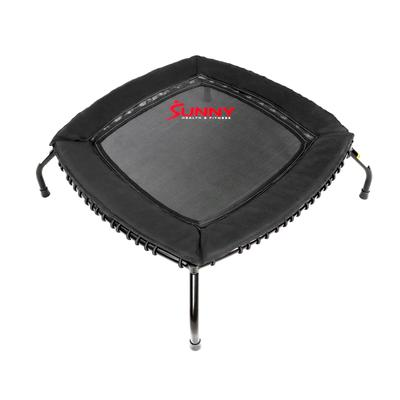
Soozier Multi Gym Workout Station with 143lbs Weight Stack $639.19
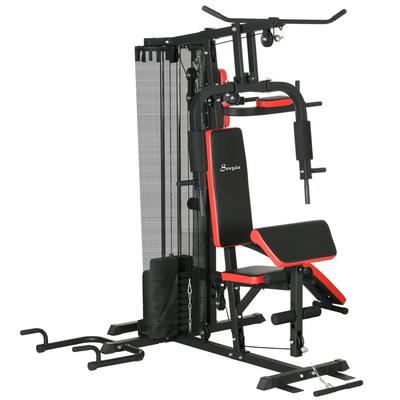
6+3 Positions Adjustable Weight Bench with Leg Extension $453.17
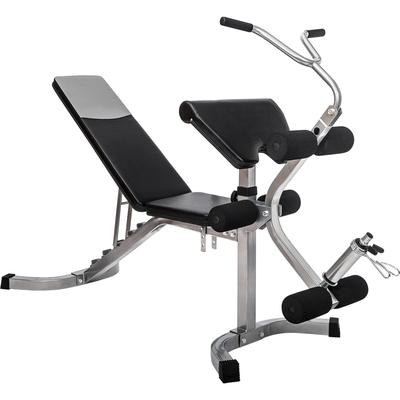
Adjustable Dumbbell Set 25LB Pairs Dumbbell 5 in 1 Free Dumbbell Weight Adjust $304.79
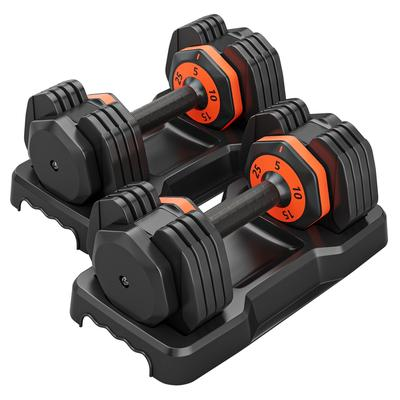
COSCO Next Gen 3-in-1 Folding Toe Plate Hand Truck $181.89
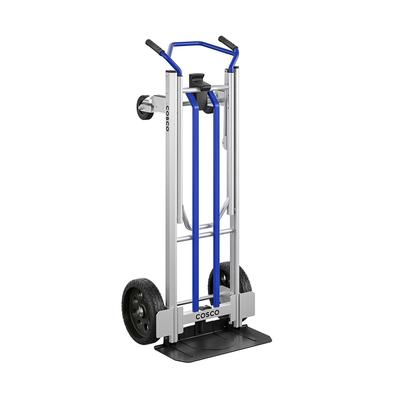
Weight Bench Workout Bench for Home Gym with Extended Headrest $157.49
